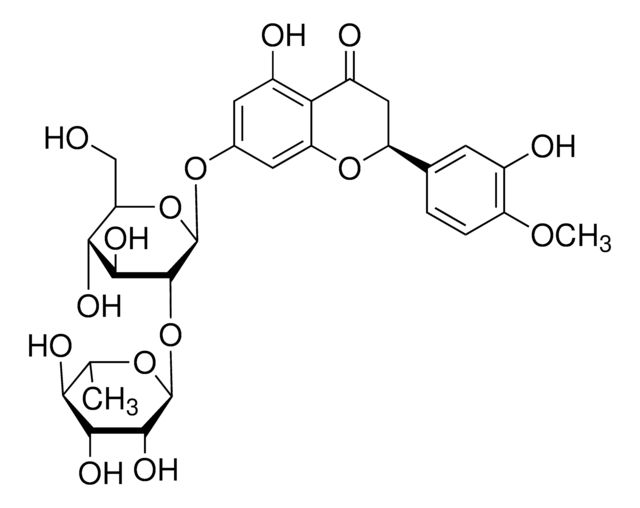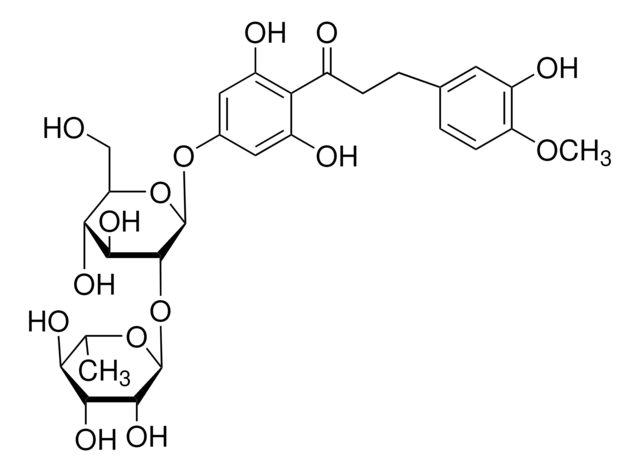N1887
Neohesperidin
≥90% (HPLC)
Synonym(s):
(S)-4′-Methoxy-3′,5,7-trihydroxyflavanone-7-[2-O-(α-L-rhamnopyranosyl)-β-D-glucopyranoside], Hesperetin 7-O-neohesperidoside, NSC 31048
About This Item
Recommended Products
biological source
plant (orange)
Quality Level
assay
≥90% (HPLC)
form
powder
color
white to light brown
mp
245.3 °C ((473.5 °F ) at 1,011 hPa - OECD Test)
solubility
pyridine: 20 mg/mL, clear, faintly yellow to yellow
storage temp.
2-8°C
SMILES string
COc1ccc(cc1O)[C@@H]2CC(=O)c3c(O)cc(O[C@@H]4O[C@H](CO)[C@@H](O)[C@H](O)[C@H]4O[C@@H]5O[C@@H](C)[C@H](O)[C@@H](O)[C@H]5O)cc3O2
InChI
1S/C28H34O15/c1-10-21(33)23(35)25(37)27(39-10)43-26-24(36)22(34)19(9-29)42-28(26)40-12-6-14(31)20-15(32)8-17(41-18(20)7-12)11-3-4-16(38-2)13(30)5-11/h3-7,10,17,19,21-31,33-37H,8-9H2,1-2H3/t10-,17-,19+,21-,22+,23+,24-,25+,26+,27-,28+/m0/s1
InChI key
ARGKVCXINMKCAZ-UZRWAPQLSA-N
Looking for similar products? Visit Product Comparison Guide
General description
Application
Biochem/physiol Actions
Other Notes
Storage Class
13 - Non Combustible Solids
wgk_germany
WGK 1
flash_point_f
Not applicable
flash_point_c
Not applicable
ppe
Eyeshields, Gloves, type N95 (US)
Certificates of Analysis (COA)
Search for Certificates of Analysis (COA) by entering the products Lot/Batch Number. Lot and Batch Numbers can be found on a product’s label following the words ‘Lot’ or ‘Batch’.
Already Own This Product?
Find documentation for the products that you have recently purchased in the Document Library.
Customers Also Viewed
Our team of scientists has experience in all areas of research including Life Science, Material Science, Chemical Synthesis, Chromatography, Analytical and many others.
Contact Technical Service








